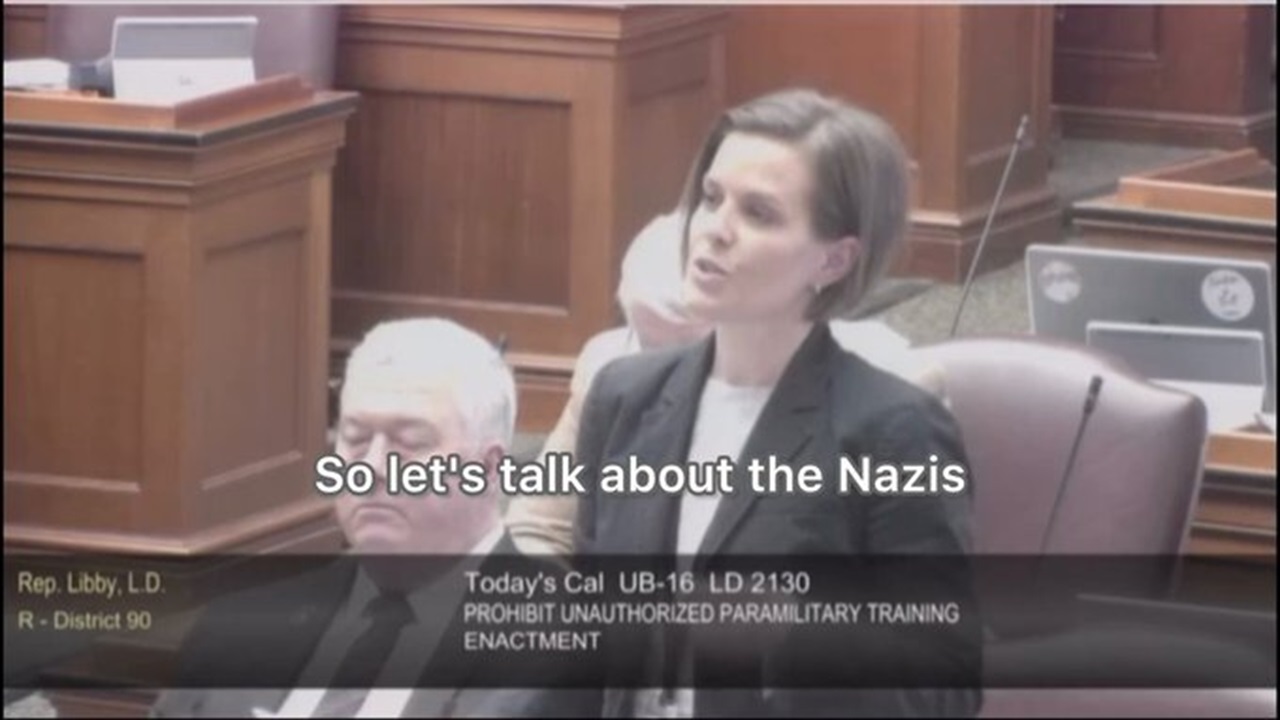A Maine lawmaker’s attempt to score debate points on gun control backfired spectacularly this week, sparking outrage online and forcing an apology. Bruce Poliquin, a Republican member of the state legislature, ignited a firestorm during a committee meeting by invoking a disturbing hypothetical scenario involving Nazis and gun confiscation.
Poliquin’s Question: A Rhetorical Blunder
Poliquin’s controversial question aimed to critique proposed gun control legislation. He posed, “If Nazis took over this country and wanted to take your guns, what would you do?” This jarring analogy immediately drew criticism from colleagues and observers alike. Many condemned the question as insensitive, trivializing the horrors of the Holocaust and its victims.
Social Media Erupts: Poliquin Faces Backlash
The question quickly gained national attention after it went viral on social media. Critics slammed Poliquin for his tactless and historically inaccurate comparison. The Nazi regime implemented strict gun control measures, particularly targeting minority groups they deemed undesirable. Poliquin’s hypothetical scenario painted the opposite picture, suggesting that Nazis would be interested in disarming the general populace.
Here’s a table summarizing the key points of criticism:
| Criticism | Explanation |
|---|---|
| Insensitivity | Trivializes the gravity of the Holocaust and the systematic oppression of millions. |
| Historical Inaccuracy | Nazi Germany implemented gun control, particularly targeting minority groups. |
| Inflammatory Rhetoric | Risks normalizing extremist ideologies and downplaying the threat of fascism. |
Poliquin Issues Apology, But Damage Done
Facing mounting pressure, Poliquin issued a formal apology. He claimed he meant no disrespect and simply wanted to spark a conversation about Second Amendment rights. However, the damage was already done.
Many questioned Poliquin’s judgment and understanding of history. The incident highlighted the dangers of using inflammatory rhetoric, particularly when referencing sensitive historical events.
Gun Control Debate Heats Up: Poliquin’s Misstep Fuels Controversy
Poliquin’s gaffe further intensified the already heated debate surrounding gun control in the United States. Proponents of stricter gun laws argue for measures that could help prevent mass shootings and other gun-related violence. Opponents, like Poliquin, often cite Second Amendment rights and express concerns about government overreach.
The following table presents some common arguments on both sides of the gun control debate:
| Pro-Gun Control Arguments | Anti-Gun Control Arguments |
|---|---|
| Reduce gun violence | Second Amendment rights |
| Save lives | Law-abiding citizens need guns |
| Regulate firearms like cars | Ineffective against criminals |
| Close background check loopholes | Criminals will get guns anyway |
The Fallout: Reputational Damage and Political Repercussions
The incident has undoubtedly tarnished Poliquin’s reputation and could have political ramifications. Critics are calling for his resignation, and his stance on gun control is likely to be a major talking point in future elections.
This event serves as a cautionary tale for politicians and anyone engaging in public discourse. It’s crucial to choose language carefully and avoid insensitive comparisons, especially when dealing with sensitive historical events.
Conclusion: A Lesson in Responsible Rhetoric
Poliquin’s misguided attempt to score political points has backfired spectacularly. The incident serves as a stark reminder of the importance of responsible rhetoric and historical awareness. It highlights the need for respectful and constructive dialogue on complex issues like gun control. Whether Poliquin can recover from this misstep remains to be seen, but the episode undoubtedly leaves a stain on his political career and injects a dose of controversy into the ongoing gun control debate.



